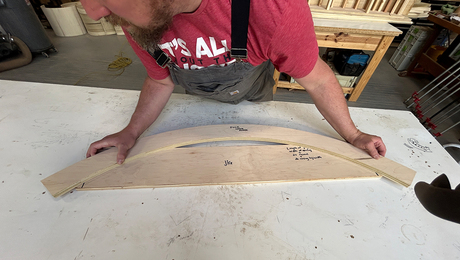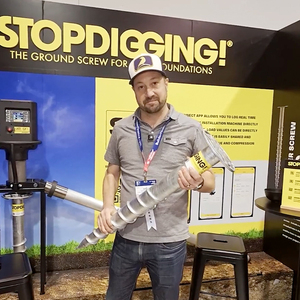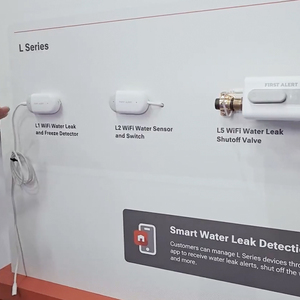Sick of snapping Bosch titanium drill bits all over the place. And what’s the other type the big boxes are pushing…is it cobalt? Or black oxide or something? Regardless, I just can’t seem to find decent drill bits around.
I’d like to purchase a nice set of high speed steel drill bits. A set that I’ll have for a few good years and run through the Drill Doctor once in awhile. You know, a set like my old man’s got that he’s had since like 1965 or something. How come my bits don’t last six months?
And while I’m tooling up again, who makes better hole saws…. Milwaukee or Lenox?
Does Irwin make decent auger bits?
Looking around the utility body today and it seems like, all of the sudden, I don’t have a decent drill bit left anywhere! Where do they go? And who steals all the #2 phillips screwdrivers?




















Replies
>> I'd like to purchase a nice set of high speed steel drill bits.
From my five year old MSC catalog. 115 piece drill set, HSS, 135 degree point (I assume split point, but it doesn't say that), 1/16 to 1/2 by 1/64, #1 to #60, A to Z. Chicago-Latrobe brand, $336.19. Made in USA but no brand name, $201.58.
>> How come my bits don't last six months?
Are you sharpening them until they're used up, or is the Drill Dr. something you're planning to buy with the nice drills? If they're breaking, it's probably because you're buying the cheap ones. If they're losing their hardness, it's because they're the really cheap Chinese imports and they're high carbon steel, not HSS. Of course you can reharden those. For some people, I'd wonder if there's a technique issue, but I'm sure your technique is flawless.
"...but I'm sure your technique is flawless."
Er ah.... I don't actually have a technique yet! Thought I'd buy a drill doctor after I owned a set of bits that were actually worth sharpening.
I've been buying the Bosch titanium bits for awhile now cuz they were the best I could get conveniently and locally. I just repace these because the usually snap before neeeding a sharpening. Can you sharpen titanium, or would it just wear the titanium off the bit?
Actually I meant your drilling technique. When I break a bit, it's not usually a great surprise. I usually have a pretty clear idea of what I was doing wrong.
Titanium nitride coated drills are coated all over because it's easier (read cheaper) than masking off the areas that don't need it. If a drill is sharpened with the correct clearance angles on the end, there's only a very narrow area of contact right at the cutting edge, so it doesn't really matter much that the TiN is ground off there when the drill is resharpened. Where the friction is really high, and where the TiN really does its job, is on the other side of the cutting edge, where the chips are forced up the flutes. Reducing the friction between the hot chips and the flutes keeps the cutting edge cooler, reduces the power required to remove X amount of material, and helps move the chips out of the hole.
Wow! You know your drill bits. Thanks for the good info. I was looking on Amazon at a 29piece HSS set by Irwin for 99.95. That sound about right for a decent set?
As far a drilling technique... I feel I'm pretty careful, I try not to exert too much downward pressure, try not to let the drill "roll" to one side or the other once the bit has entered the wood, and back out the bit to clear chips when it bogs down. Guess there is always room for improvement though huh?
A good example, yesterday I was prepping Mahogany 4x4's to recieve 3/8" lags. While drilling with a Bosch titanium bit (brandy new) I would have to back the bit out every 3/8" or so of drilling and let it spin in the open air. That Mahog would just glue itself in the flutes in no time if I let any sort of heat build up in the hole. Very gummy stuff. Was I doing something wrong? Or was it just the stock. Snapped a bit after about 5 holes. The replacement bit finished the other 25 holes.
I don't know anything about Irwin, except that they're the classic name in augers. Current production, I have no idea if they're any good. As far as price, I'd say go the the MSC web site http://www.mscdirect.com or the other big industrial tool supply companies, McMaster-Carr is another one, and check the prices there. It can be hard to decide what's an equivalent product for price comparisons. MSC has (had, in 1999) about 20 different 29 piece drill sets, HSS or cobalt, polished flute, surface treated, or TiN coated, 118 or 135 degree points, plain, split, or helical points, just about everything except plain uncoated HSS in 135 deg. split point. But yeah, I don't think you're likely to get a really good set for much under $100.
If you drill mostly wood, have you tried the brad point drills? I haven't, because I drill mostly metal, so I can't say anything about their performance. The other thing is, how many of the drills in a 29 piece set do you actually use? The one brad point set I just looked up was 1/8" to 1/2" by 1/16" increments. If you don't need all those intermediate sizes, why pay for them?
Sounds like you did the best you could with that mahogany. Even drilling in steel, if the hole gets very deep, the chip will sometimes quit spiralling up out of the hole and start packing up in the flutes. In wood, I think every hole I've ever drilled deeper than two or three drill diameters has required multiple trips in and out of the hole.
PS - Another interesting thing about drilling in steel is that it's a lot more obvious when your drill is only cutting on one side. Nice fat chip coming up out of one flute and nothing out of the other one, or only dust.
I've always wanted a good 115 peice set. Nice link above to MSC. The have half a page of choices, from $40 to 500. Most in the $170 to 300 range.
Question....why 115 degrees over 135? Or vice versa?Jake Gulick
[email protected]
CarriageHouse Design
Black Rock, CT
>> ... why 115 degrees over 135? Or vice versa?
I don't know, but I'll speculate. :) All the 135 deg. that I have bought have been split point, so my guess is that either there's something about the split point that requires a blunter tip, or there's something about the split point the allows a blunter tip, which is desirable in it's own right, for some reason.
It may be that they have to have the blunt tip to support the two extra cutting edges that are ground in a split point. If you ground a split point on a 118 deg. drill there might just not be enough metal there to back up the edges in use. But that's just a guess.
Another possibility is that a flat bottom drill is in some sense ideal, and that the split point drill can come closer to that ideal. If you're drilling a blind hole, the little conical part of the hole represents material that was removed strictly for process reasons. In most applications, removing that extra material does nothing functional for the hole. If you look carefully at the tip of a regular (non-split point) drill, you'll see that the two cutting edges don't meet in the center. (It's easier to see on the larger drills.) Instead, there's a short chisel tip, something like 1/8 of the drill diameter, between the two cutting edges. In operation, this chisel tip can't cut. At best it scrapes and more often it just mooshes the material away from the center of the hole to where the real cutting edges can grab it and get it out of there. It may be that the 118 deg. point is required to keep that chisel tip centered. The split point, because of its two extra cutting edges, cuts much closer to the center of the hole, and that may be what what allows it to do its job with a blunter tip. But again, that's just speculation. The logical end point of that progression would the counterbore, which doesn't have to cut to the center of the hole at all, and has an included angle of 180 deg.
PS - That non-cutting chisel tip on a regular drill point is the reason that in some materials it can be dramatically faster to drill a pilot hole, or even several progressively larger holes, before finishing with the full size drill, even if the full size drill could do the whole thing in one pass.
Edited 11/27/2003 3:59:43 PM ET by Uncle Dunc
In simple terms, the "pointier" the tip, the longer the cutting edge, hence the softer the material, the 'pointier' you want the tip to be. Bits I have meant for cutting polycarbonate, acrylic, or teflon are 60 deg points, bits for cutting titanium or 4140/4340 are nearly flat. Everyday jobber bits at 115 (or 118) are a compormise between wood/aluminum and mild steel, the 135 a compromise between mild and harder steels.
What you may get for the pricier bits is a double cut sharpening, where the chisel point UncDunc refers to is cut into witha second sharpening cut so there is a true crossing of the web at a single point that is effectively a smaller diameter bit. You can do that by hand on bits larger than about #8 with a fine wheel.
Don't forget speed and feed, look at a Mach. Handbook or such for details, the harder and bigger, the slower the drill speed needs to be. More than you ever wanted to know about cutting angles, chip relief, etc, etc. are there also.
I concur with Junkhound,
I snap a lot of 1/4" pilot bits in holesaws and got some Boeing or Northrup surplus bits at a swap meet. (Following his advice in a similar query/thread I started a month or so ago). I got them in sizes from 1/4 to 1/2" in HSS and Cobalt for anywhere from 15cents to a 50 cents each.
If you need a drill index full of bits in variety of sizes the only reason I can think of NOT to buy the HF discount index is that you want to buy American. If so it is a commendable reason. If you are worried about quality, I don't think you will find any major fault with the HF drills.
If you are primarily drilling in wood, I suspect the drill doctor is a bit of overkill. My BIL who learned drill sharpening while working at a Caterpillar Tractor factory showed me how to sharpen bits by hand and admittedly they won't perform to a precision machinists standards, they are more than adequate for drilling pilot holes in wood or through framing connectors.
It is surprisingly easy to put a severely damaged drill back into service after spending a minute or so with a bench grinder. It isn't quite as easy, but in a pinch I have sharpened drills on both belt sanders and disc sanders. Again, a machinist would point out my drills no longer cut with the precision tolerances they require but I have never done work requiring tight hole tolerences. I am mainly after rapid cutting of material when I drill a hole.
See if you can find someone who has mastered the basics of drill sharpening and get them to give you some coaching. It seems there is a never ending supply of damaged and broken drill bits to practice your sharpening techniques on.
Good Luck, Karl
Where do they GO?
I'm one man operation and all kinds of stuff disappears - but oftens turns up a few weeks later in a different room.
So, why not try the HF M2 HSS bits, $29 for the 139 pc set, $8 for the 1/16-1/2 by 1/16 set. The one's I've gotten are OK, not as good as cobalt, but decent HSS. Just bought 4 more sets for Christmas gifts.
Best however are resharpened cobalt bits at local aerospace surplus store for $2/pound. Surplus 'cause the tolerances are no longer to 4 decimal places.
BTW, relative to $29 vs. $300 plus - how can the PRC make a digital multimeter that is actually accurate and have it retail (delivered even) thru US disributors for $2.97, including a 9 V battery???? Just bought 15 of those for 'stocking stuffers".
Another vote for the Harbor Freight M2 sets. I did my own independant laboratory test a few weeks ago on them and they came out with flying colors. Bought 2 of the 29 pc sets, and one of the 115 pc. I already own a drill doctor.....watch the video, get the technique... easy stuff.
Just Monday, I was putting on a new storm door handle for a neighbor lady, was using a an old Makita 7.2 that I use for simple hardware, but in a dewalt 3/8" to enlarge a hole for the new handle, got it in, bound up and snapped in the center....a little 7.2, that I can stop with my hand, snaps a 3/8" cobalt, Nice...really nice.